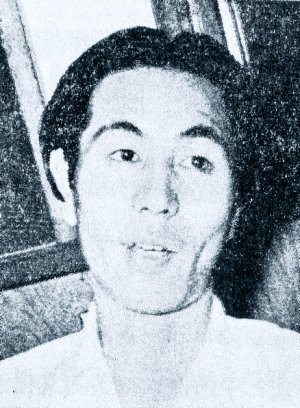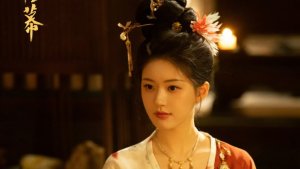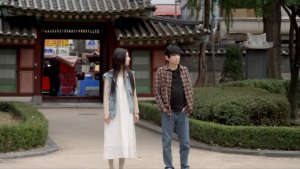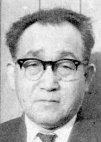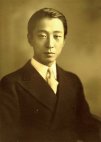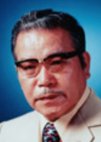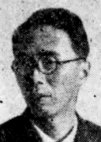Ifukube Akira
- Name: Ifukube Akira
- Native name: 伊福部昭
- Also Known as: いふくべあきら
- Nationality: Japanese
- Gender: Male
- Born: May 31, 1914
- Died: February 8, 2006
Ifukube studied forestry at Hokkaido Imperial University in Sapporo and composed in his spare time, which prefigured a line of self-taught Japanese composers. His first piece was the piano solo, Piano Suite (later the title was changed to Japan Suite, arranged for orchestra), dedicated to George Copeland who was living in Spain. Ifukube's friend Atsushi Miura at university sent a letter to Copeland. Copeland replied, "It is wonderful that you listen my disc in spite of you living in Japan, the opposite side of the earth. I imagine you may compose music. Send me some piano pieces." Then Miura, who was not a composer, presented Ifukube and this piece to Copeland. Copeland promised to interpret it, but the correspondence was unfortunately stopped because of the Spanish Civil War. Ifukube's big break came in 1935, when his first orchestral piece Japanese Rhapsody won the first prize in an international competition for young composers promoted by Alexander Tcherepnin. The judges of that contest—Albert Roussel, Jacques Ibert, Arthur Honegger, Alexandre Tansman, Tibor Harsányi, Pierre-Octave Ferroud, and Henri Gil-Marchex were unanimous in their selection of Ifukube as the winner.[1] Ifukube studied modern Western composition while Tcherepnin was visiting Japan, his Piano Suite received an honourable mention at the I.C.S.M. festival in Venice in 1938. Japanese Rhapsody was performed in Europe on a number of occasions in the late 1930s.
On completing University, he worked as a forestry officer and lumber processor in Akkeshi, and towards the end of the Second World War was appointed by the Imperial Japanese Army to study the elasticity and vibratory strength of wood. He suffered radiation exposure after carrying out x-rays without protection, a consequence of the wartime lead shortage. Thus, he had to abandon forestry work and became a professional composer and teacher. Ifukube spent some time in hospital due to the radiation exposure, and was startled one day to hear one of his own marches being played over the radio when General Douglas MacArthur arrived to formalize the Japanese surrender.
From 1946 to 2006 in Tokyo
He taught at the Tokyo University of the Arts (formerly Tokyo Music School), during which period he composed his first film score for The End of the Silver Mountains, released in 1947. Over the next fifty years, he would compose more than 250 film scores, the high point of which was his 1954 music for Ishirō Honda's Toho movie, Godzilla. Ifukube also created Godzilla's trademark roar – produced by rubbing a resin-covered leather glove along the loosened strings of a double bass – and its footsteps, created by striking an amplifier box.
Despite his financial success as a film composer, Ifukube's first love had always been his general classical work as a composer. In fact his compositions for the two genres cross-fertilized each other. For example, he was to recycle his 1953 music for the ballet Shaka, about how the young Siddhartha Gautama eventually became the Buddha, for Kenji Misumi's 1961 film Buddha. Then in 1988 he reworked the film music to create his three-movement symphonic ode Gotama the Buddha. Meanwhile, he had returned to teaching at the Tokyo College of Music, becoming president of the college the following year, and in 1987 retired to become head of the College's ethnomusicology department.
He trained younger generation composers such as Toshiro Mayuzumi, Yasushi Akutagawa, Akio Yashiro, Teizo Matsumura, Sei Ikeno, Minoru Miki, Maki Ishii, Kaoru Wada, Yssimal Motoji and Imai Satoshi. See: List of music students by teacher: G to J#Akira Ifukube. He also published Orchestration, a 1,000-page book on theory, widely used among Japanese composers.
He died in Tokyo at Meguro-ku Hospital of multiple organ dysfunction on 8 February in 2006, at the age of 91 and buried at the Ube shrine in Tottori.
Honors
The Japanese government awarded Ifukube the Order of Culture. Subsequently, he was awarded the Order of the Sacred Treasure, Third Class. (source: Wikipedia) Edit Biography
Composer
Music Editor
| Title | Rating |
|---|---|
| The Whale God | 7.2 |
| Buddha | 0.0 |
Trending Articles
Esther Yu's Love Game in Eastern Fantasy domestically beats Zhao Lu Si's The Story of Pearl Girl
News - Nov 8, 2024
The recently released Chinese dramas are in a tight race for popularity
Moon Embracing the Sun actor Song Jae Rim passes away at 39
News - Nov 12, 2024
Byeon Woo Seok's agency to take legal action against malicious commenters
News - Nov 15, 2024
Read the full statement from VARO Entertainment
Woo Do Hwan chooses exercise over drinking for stress relief — Mr. Plankton
News - Nov 14, 2024
Check out Woo Do Hwan's interview for Mr. Plankton
Zhao Lu Si candidly states Duanwu isn't worth learning from (The Story of Pearl Girl)
News - Nov 11, 2024
Read the excerpts from Zhao Lu Si's interviews
Shen Yue returns to the small screen with Smile Code
News - Nov 5, 2024
The upcoming healing comedy C-drama Smile Code unveils its premiere date
Bai Lu and Wang Xing Yue's upcoming C-drama is more than just a mystery thriller
News - Nov 13, 2024
The two stars have been confirmed to lead a new Chinese mystery drama
Kim Sae Ron is confirmed to return to the movie scene after two years of hiatus
News - Nov 13, 2024
Kim Sae Ron is officially returning to the industry.

